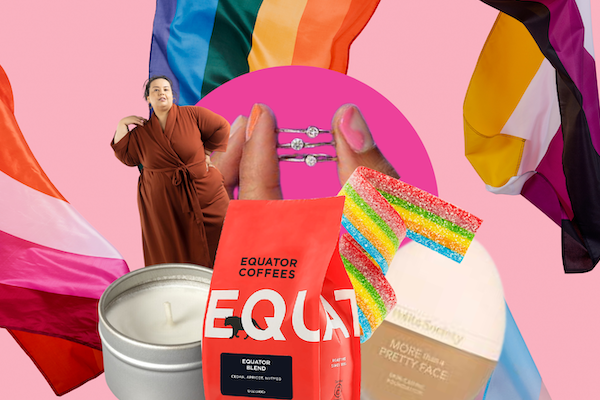
6 Queer-Owned Booze Brands
April 25, 2023
Artist Kitoko Mai Explores Dissociative Identity Disorder Through Art
May 1, 2023Three-quarters of LGBTQ+ women and non-binary people still fear coming out at work because of high rates of discrimination, according to new research carried out by myGwork, global talent platform and professional network for the LGBTQ+ community.
The study, carried out to coincide with Lesbian Visibility Week, delves into some of the specific challenges that over 2,000 LGBTQ+ women and non-binary professionals from around the world, face at work. The findings show that seven out of 10 continue to experience discrimination at work. And, the figure is much higher for people of color, and those from more marginalized communities and ethnic minority groups. For example, gender nonconforming and gender queer people experienced the highest rate of discrimination at work, followed by cisgender women (76%), gender fluid (75%), intersex (68%), trans women (66%) and non-binary people (65%).
Many LGBTQ+ women and non-binary professionals believe that their sexual orientation or gender identity also hinders career progression, and influences whether they are offered training and development opportunities to get ahead. In fact, 8 out of 10 survey respondents across all age groups said that it’s tougher for LGBTQ+ women and non-binary people to shatter the glass ceiling than straight cisgender women.
Again, the figure is much higher for those with intersectional experiences who belong to other marginalized communities. LGBTQ+ women and non-binary professionals of color, for example, find it much harder to progress higher up the career ladder than their White colleagues. Those with Latinx (86%), South Asian (85%) and Middle Eastern (85%) backgrounds found it the most difficult, followed by East Asian (83%) and Black/African communities (81%), compared to their White colleagues (76%). This is despite reported high rates of allyship from both men and cis-gender straight women, as well as more visible LGBTQ+ role models at work.
Furthermore, the research confirmed that very few LGBTQ+ women and non-binary professionals occupy top C-suite leadership roles, with just 9% holding C-suite leadership roles, and only 3% are CEOs or company founders. The research also revealed other insights, such as how the community perceives the term ‘lesbian’. Around 61% of respondents said they are happy to be called a lesbian, yet 20% said they are uncomfortable with this label. Additionally, an overwhelming 78% would like their employers to provide menstrual leave.
Linda Riley, Founder of Lesbian Visibility Week and Publisher of DIVA magazine, described myGwork’s latest research as “incredibly valuable” because it highlights the reality of being an LGBTQIA woman or non-binary person in the workplace. “It shows that while progress has been made, there is still a long way to go before everyone in our community can feel safe to be their authentic selves at work. It is so important to have this kind of study focusing on our specific, and all too often overlooked, experiences,” stated Riley.
Michelle “Michi” Raymond, Business Development Director at myGwork, agreed: “Lesbian representation matters because it’s not just about visibility. To create a workplace that is truly inclusive and supportive, businesses need to actively listen to and learn from their employees. By embracing diversity and championing inclusivity, we can create a work environment that not only accepts, but celebrates all identities.”
Click here for more information about the research.





